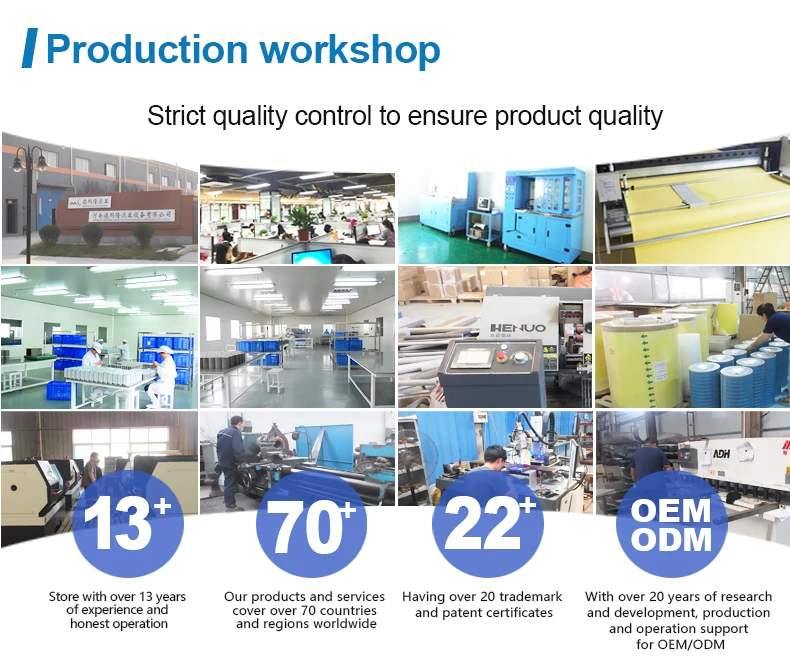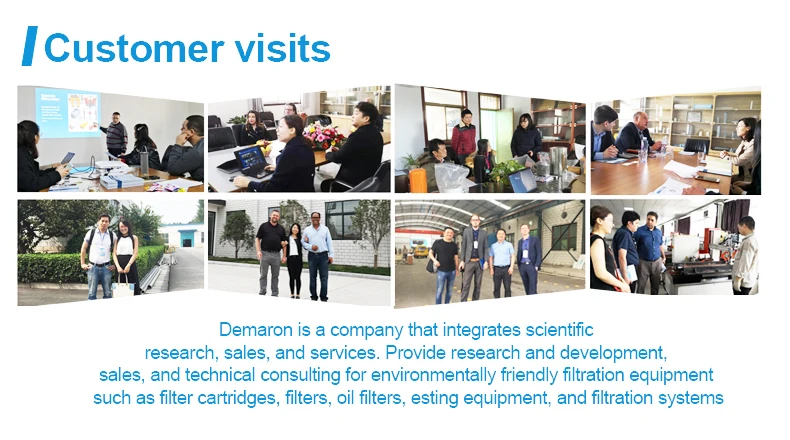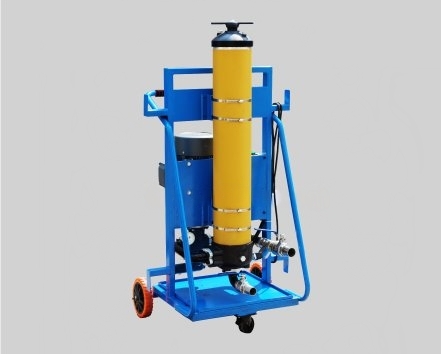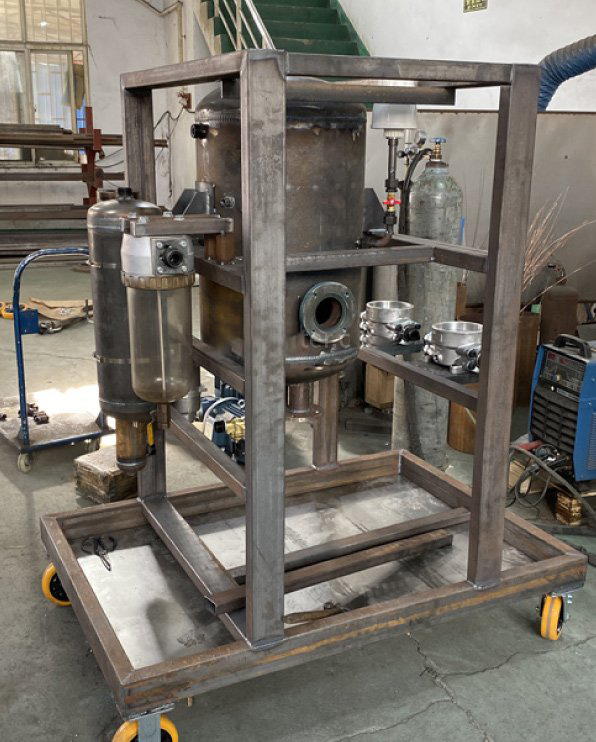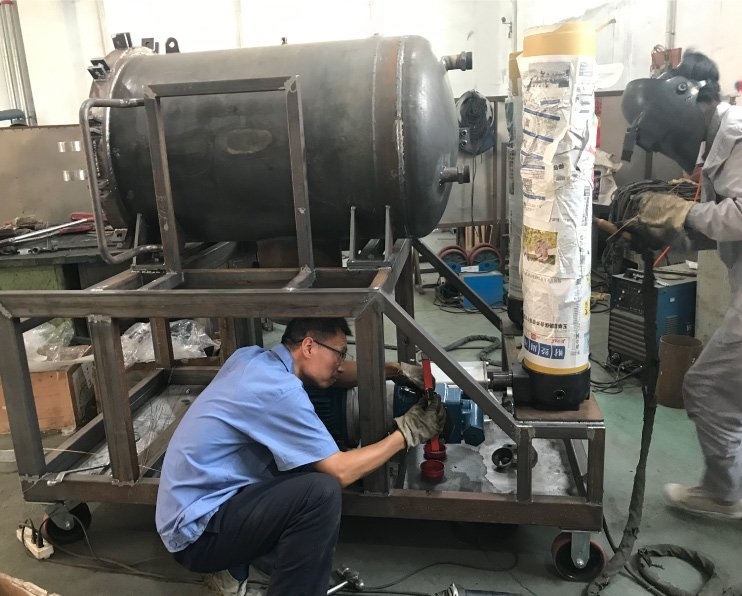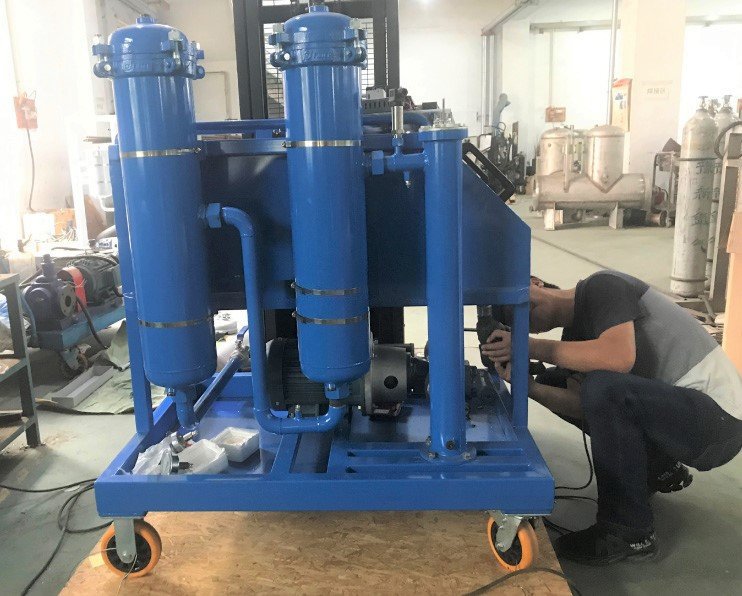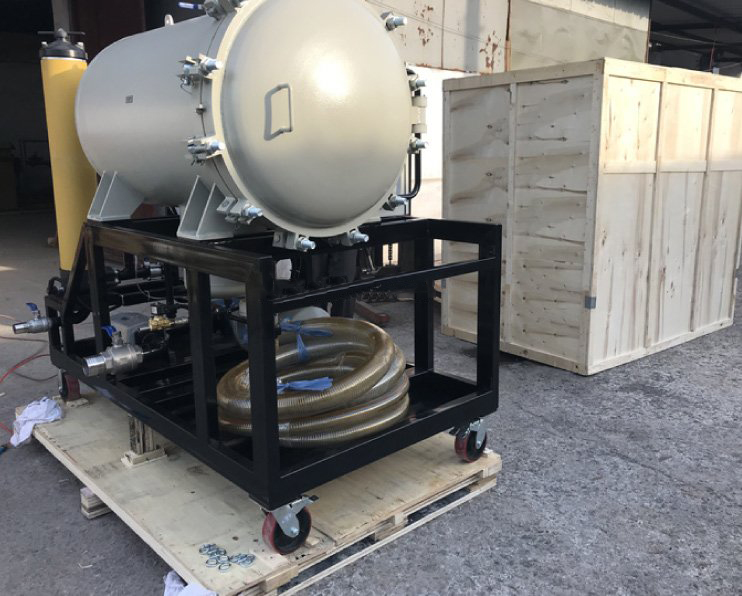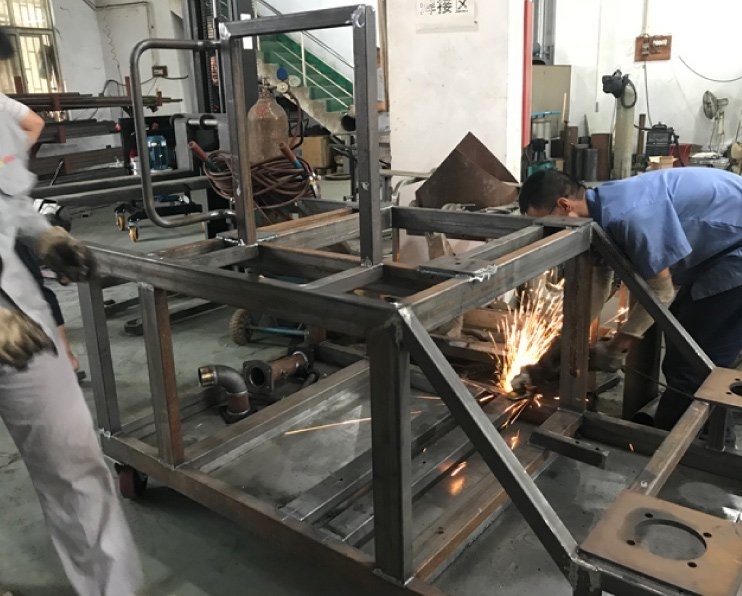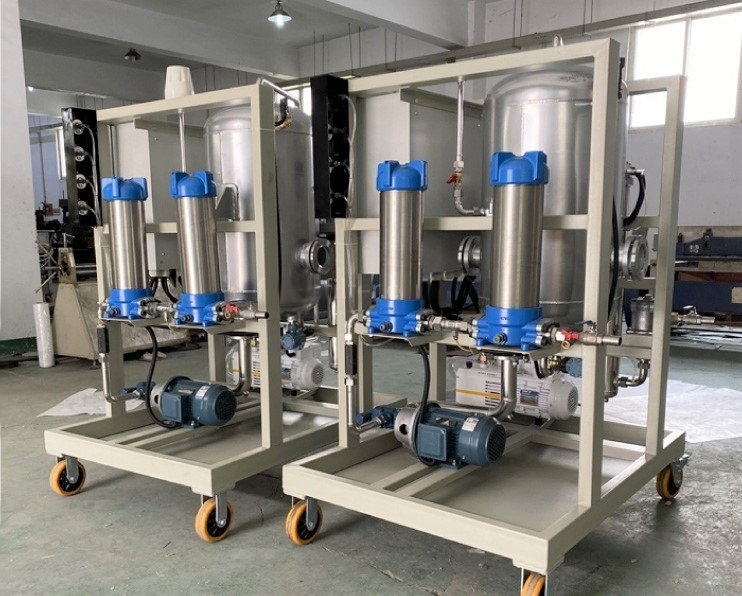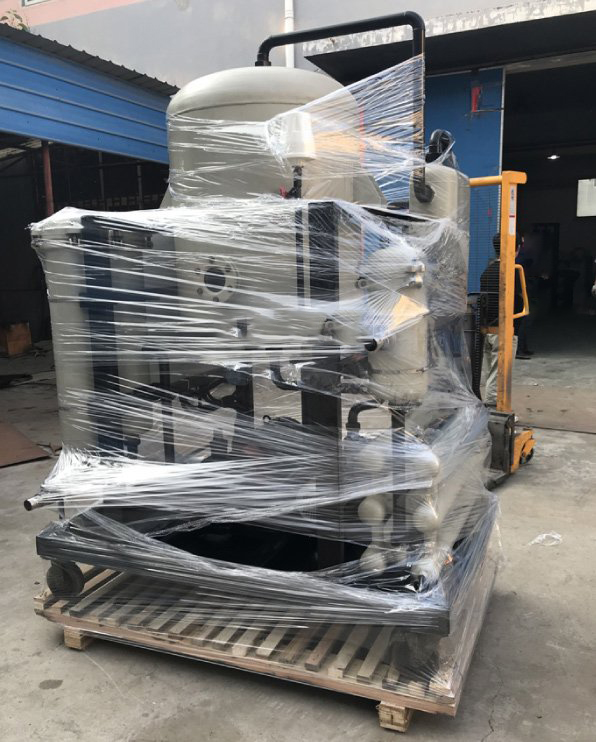Why DeMalongOil Filtration Systems
DeMalong offer a wide range of custom oil filtration carts for all your need, such as high viscosity and anti-explosion oil applications, high accuracy-1 micron and large filtration area request. Recently we design and manufacture small vacuum dehydration unit, it is light-weight and convenient with high water absorption capacity and limited space advantages.
- Better Protection From Particles, Water, Varnish, Acid
- Varied Material Available And Design Flexibility
- High Flow Rate Even For High Viscosity Fluids
- Superior Filtration Efficiency For Clean&Dry Oil
- PLC Control System For Easy And Simple Operation
Custom Oil Filtration System Based On Your Need
DeMalong focus on design and produce all kinds of oil filtration systems with more than 18 years. No matter for custom oil filtration systems or replacement oil filtration systems, our engineering team could design proper oil filtration system models to help you prolong oil life-span, improve oil filtration effect but with more economic price and quicker delivery time.
Please send us your oil kinds, flow rate, filtration accuracy, wanted dewater efficiency, or even ideal oil filtration systems with other brands, Like Pall HNP006 Oil Purifier, Hydac OF5 Oil Filter Cart, Hypro Vacuum Dehydrator, Parker 10MFP filter carts, we will quote for you immediately.
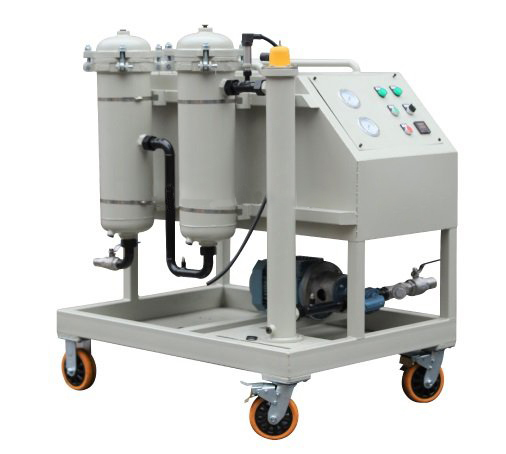
DeMalong high viscosity oil purifier offer a cost-effective solution to effectively remove particulate contamination from 160-760cSt viscosities range of oils.
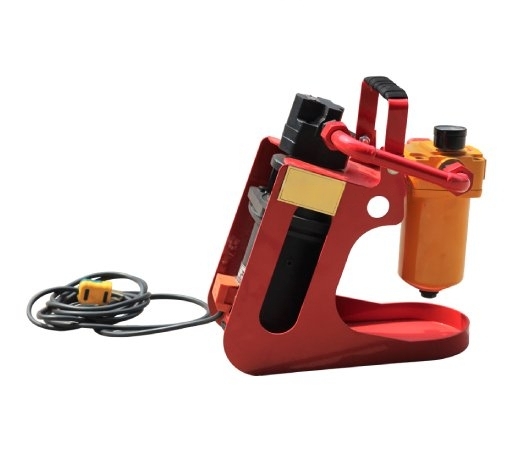
DeMalong handheld oil filter cart is lightweight and easy-to-operate to control your oil cleanliness level. Flow rate up to 16LPM with 5micron rating.
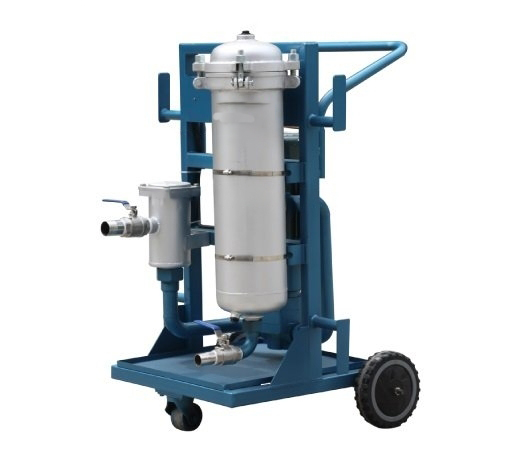
DeMalong portable oil filter carts are used to remove particles from all kinds of oils. It can be used as oil transfer cart or to clean up cleaning oil systems.
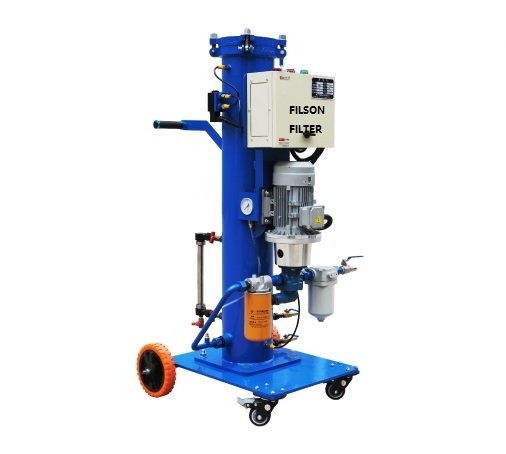
DeMalong mobile coalesce filtration unit features a large combination coalesce/separator element to remove free water from turbine lube oil. It can achieve water content below 50ppm with flow rates up...
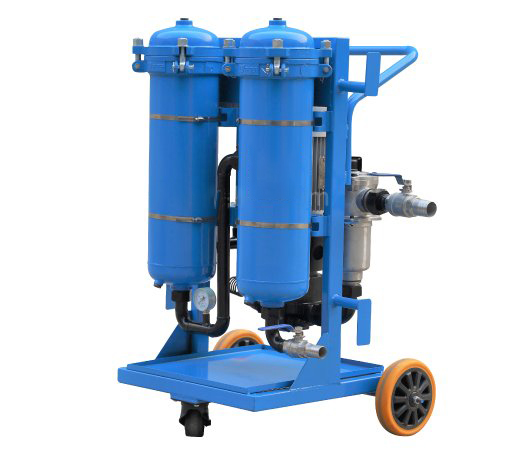
DeMalong portable hydraulic oil filtration unit provide excellent system protection and highest oil cleanliness level. With micron rating up to 1micron, flow rate from 5LPM to 350LPM.
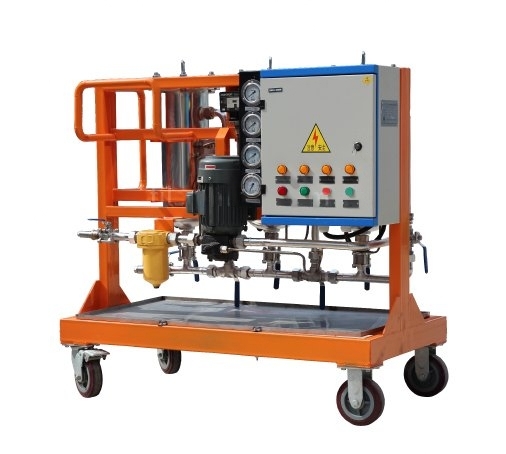
DeMalong multi-stage oil filtration unit are suitable for highly contaminated industry fluids that you don’t need to replace insert elements frequently and easily achieve high accuracy.
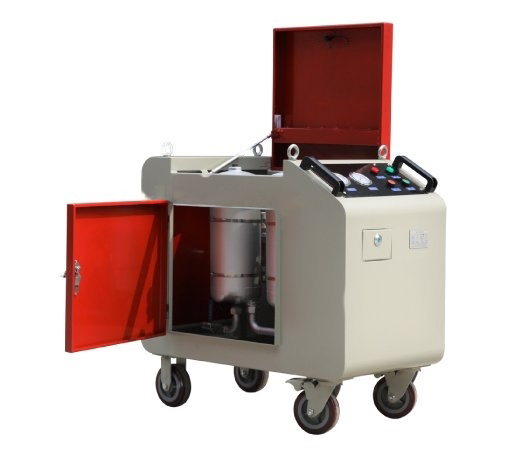
DeMalong tote oil filter carts mainly use in the most arduous environment to suit customer’ specific requests, such as built-in tank or anti-explosion functions.
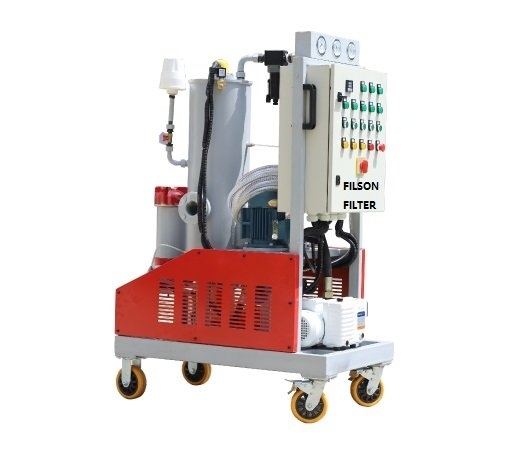
DeMalong vacuum oil filtration cart has compact and light weight structure with flow rate upto 20LPM. Compare to vacuum dehydration, it can achieve the same dewater efficiency but with a competitive p...
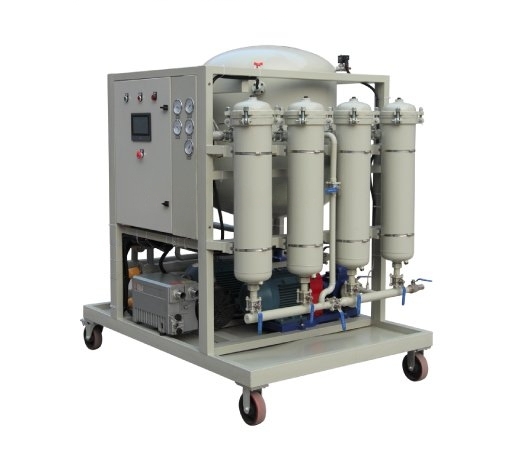
DeMalong vacuum dehydration unit is specially designed to remove 100% free water and 80% dissolved water, meanwhile it can capture solid contaminants to 3 microns, with efficiency of 99.9%.
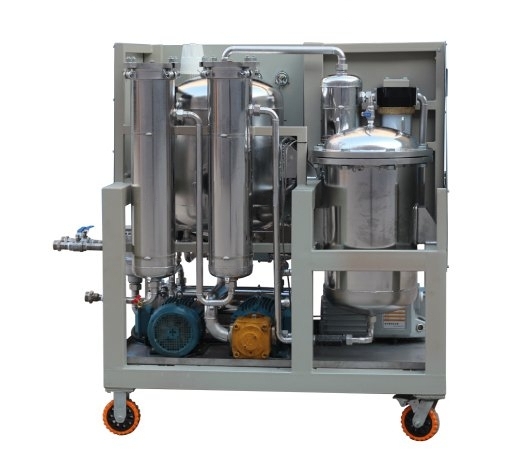
DeMalong transformer oil purifiers can achieve better dewatering effect to 10ppm with dual-stage vacuum system and higher vacuum degree. Water or particle content detector is available for intuitively...
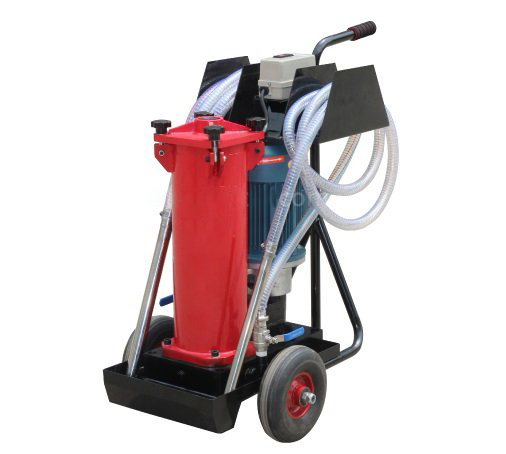
No matter used for replacing diesel fuel oil, turbine oil filter cart or hydraulic and lube oil filtration systems, just please tell us flow rate, accuracy or original model number, like Hydac OF5 fil...
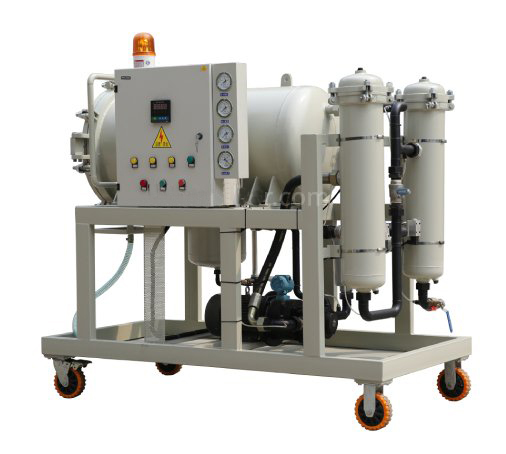
DeMalong coalesce skid rapidly achieves water content below 50ppm for turbine oil, transformer oil, hydraulic and lube oil. It is equipped with PLC control system and auto-water drain.
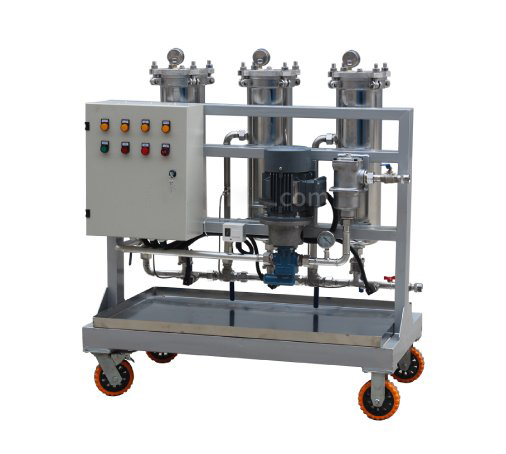
Acids in oil can easily cause corrosive wear of fluid system. DeMalong acid removal ion exchange filter has high acid removal effect, often installation in vacuum dehydrator system together to achieve...
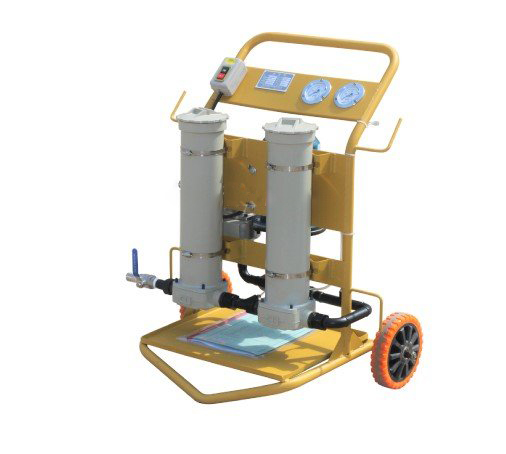
DeMalong replacement Parker filter carts-Models 5MFP & 10MFP use two high capacityfilters for longelement life and better system protection. It is the most economical way to extend your equipment serv...
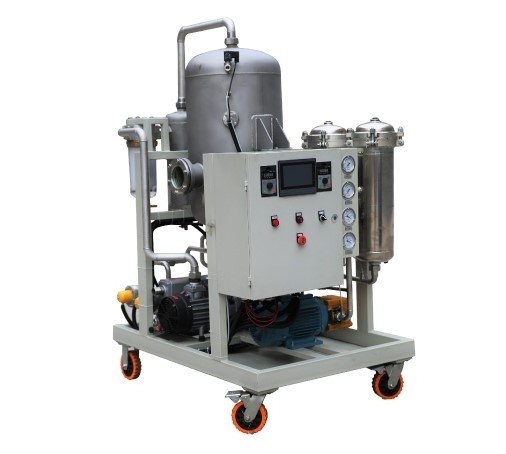
DeMalong phosphate ester oil filtration equipment are used to greatly enhance the reliability of plant equipment by removal of harmful moisture, acid and particulates. It adopt stainless steel materia...
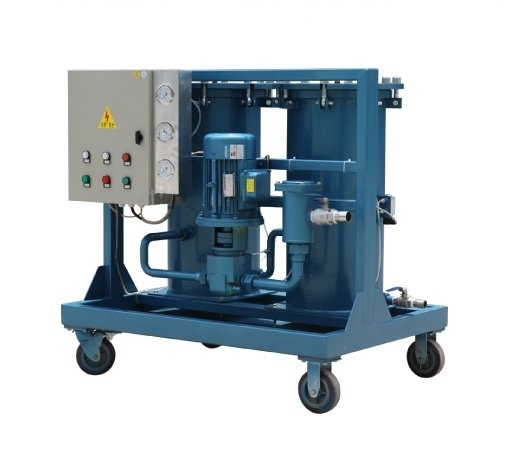
DeMalong oil filtration systems are supplied with options including adsorptive depth cellulose varnish removal filter elements for rapid varnish removal, meanwhile they feature Beta 1000 rated micro-g...
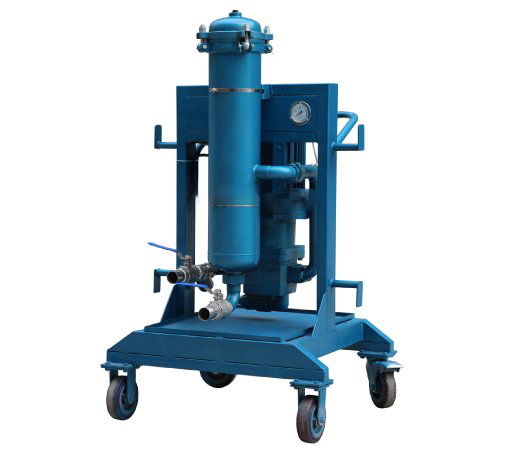
DeMalong replacement Eaton filter cart features a single bag filter housing in carbon or stainless steel material. It is compact and easy handling with flow rate up to 45 GPM with 125 psi pressure.
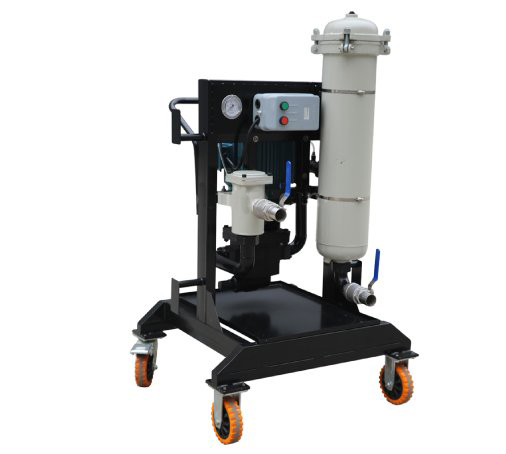
DeMalong replacement Harvard filter carts offer 100% custom service for wide range of fluids and oil viscosity, such as coalesce filter and bag filter available, magnetic oil filtration systems design...
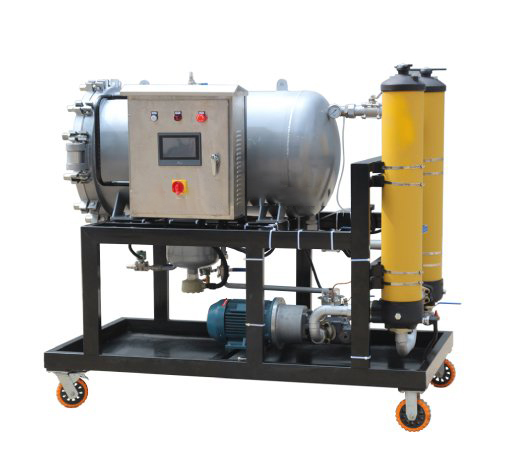
DeMalong replacement oil filter carts have the same water and impurity removal efficiency with original Pall filtration system, like 1-3micron, water content lower than 50ppm, but with more competitiv...
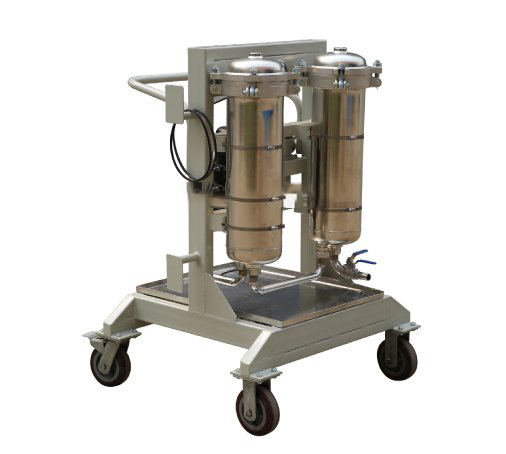
DeMalong replacement Des case portable filter carts and vacuum dehydration can dramatically improve system performance and fluid life, preventing production downtime and expensive machinery repair cos...
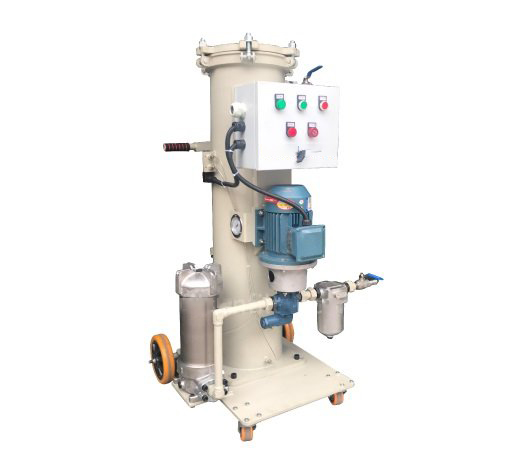
DeMalong has full series replacement products for Hy-Pro filter carts, such as dedicated off-line filtration, Hypro vacuum dehydration, turbine oil & fuel coalesce, soluble varnish removal SVR and ele...
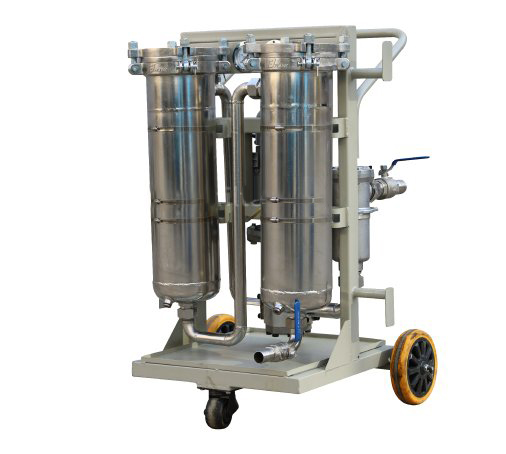
DeMalong manufactures replacement Norman high viscosity filter carts & mobile filtration cart to filter particulate and water contaminants found in new and existing hydraulic and lube oil. It can achi...
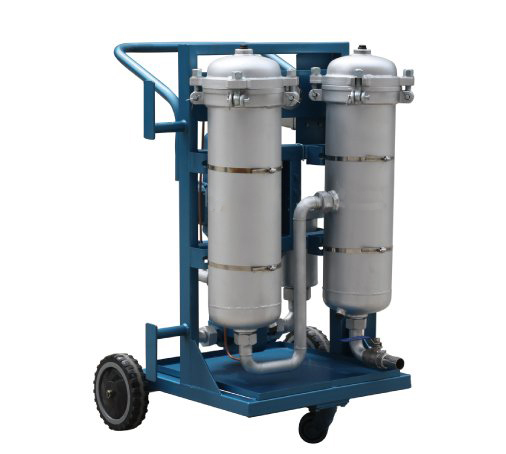
DeMalong replacement Kidney Loop offline oil filtration system is availablein a range of flow rates and several filtration media options, including depth, microglass, paper and water absorptive to sat...
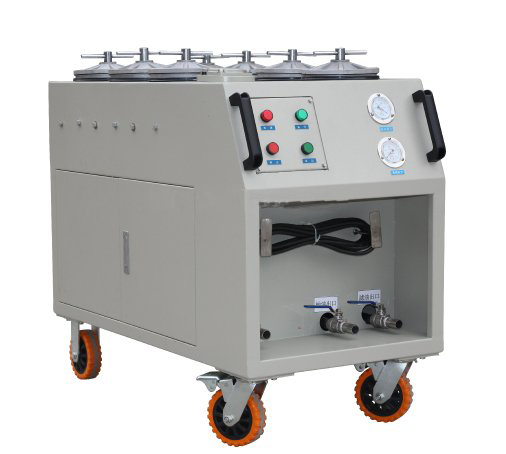
DeMalong replacement Triple R filter carts has ‘all-in-one’ structure to remove all pollutions, such as solid particles, water, sludge and oil degradation from industrial hydraulic oil and lube oil.
- Detail Pics
- Drawing
- Process Technology
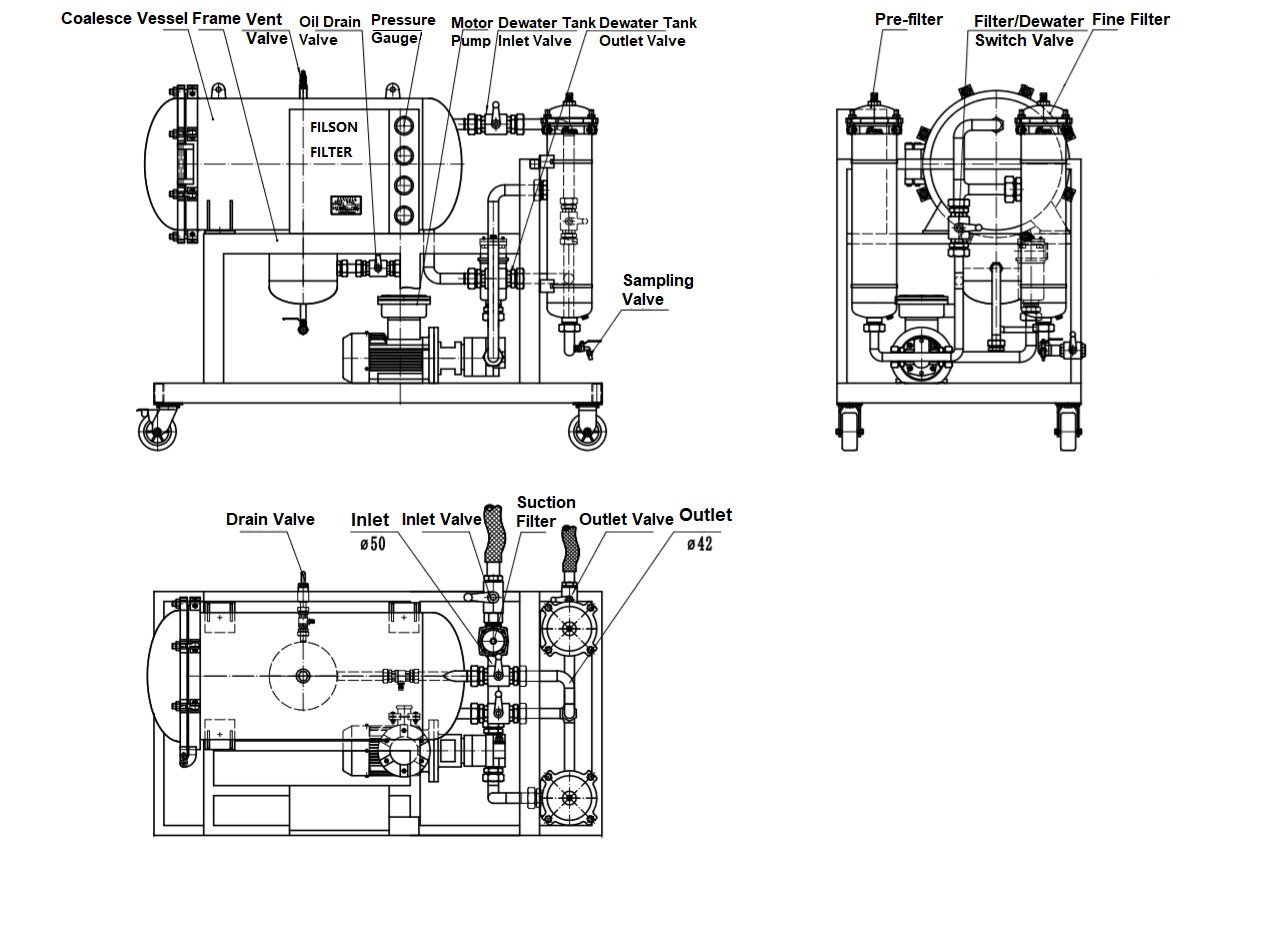
Send Inquiry Now
Frequently Asked Questions
If you have any questions, our FAQ section is a great place to get concise, accurate answers.
DeMalong Oil Filtration System
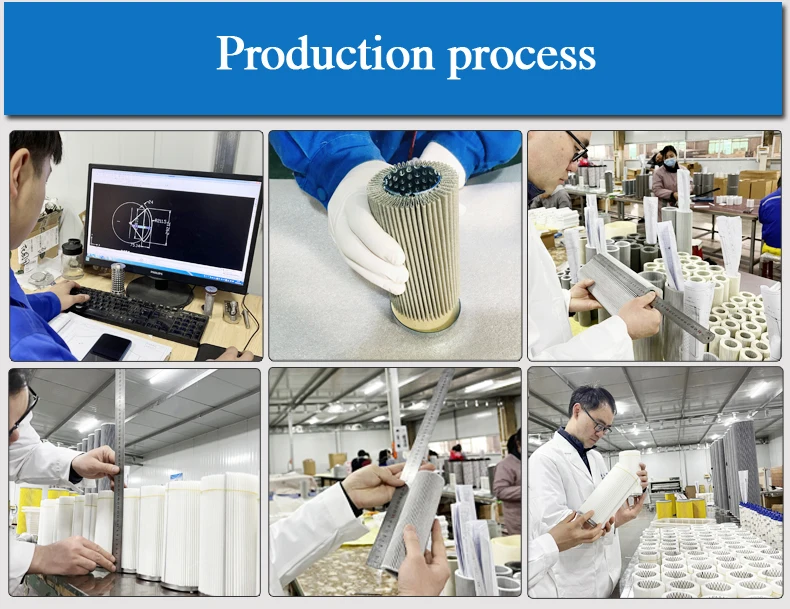
DeMalong oil filtration systems also names oil filtration equipment or oil filter cart, which is designed to remove water, varnish, acid and particles from oil. DeMalong oil filtration systems mainly includes hydraulic oil filter carts, lube oil purification systems, oil purifiers for phosphate ester fluids, vacuum dehydrators, offline filtration systems, turbine oil filtration units and more.
Water and air in oil can easily cause oil oxidation and lubricating properties loss, finally affect the reliability of the system and the service life of system components and oils. DeMalong oil filtration systems are ideal ways to help you achieve NAS5 and system stability through multiple filtration.
DeMalong oil filtration systems offers superior system protection as well as higher cleanliness level, longer equipment life, etc. Compared with other oil filtration system suppliers, DeMalong Filter cart has much better water removal performance and filtration efficiency. Like our vacuum dehydrators, can remove 100% of free water, free gas and 90% of dissolved water, dissolved gas.
Not only with standards filtration system, DeMalong also offer customized oil filtration units for special requests. For example, fire resistant oil is easy to form acid substances under high temperature and moisture environment. DeMalong design the regenerative filtration module with strong polarity silica-alumina adsorbent, to reduce the oil acid resistance and increase oil resistivity.
With more than 18 year experience in manufacturing oil filtration systems, DeMalong has strong customer base in hydropower station, steel mill and marine industries. Our portable oil filtration systems are selling to 30+ countries now, therefore we prepare stock for basic portable filter carts, which is easier to fulfill small orders and shorten the lead time.
DeMalong oil filtration systems have significant advantages, such as, simple and easy operation, Siemens PLC control systems for unattended facility, automatic drainage choices… No matter for high viscosity, flammable or high polluted oil, DeMalong portable oil filtration systems can overcome these technical problems to achieve oil cleanliness level.
If you’re looking for oil filtration system manufacturer, then you’re in the right place. DeMalong engineer team will help you design and choose proper oil filtration units, that most suitable for your applications with quick delivery.
Contact us now.
PS: All parts marked “replacement” or “equivalent” are not affiliated with the original Filter Cart manufacture, filter part numbers and names are used for cross reference only.
Oil Filtration Systems: The Ultimate FAQ Guide
In this guide, you will find all information you’re looking for about oil filtration systems.
Whether you want to learn about specifications, classification, or benefits, you will find the information you’re looking for right here.
So, keep reading to learn more.
Why Do You Need Oil Filtration Systems?
The main purpose of an oil filtration system is to clean the oil that passes within it.
Oil filtration systems perform this task by trapping contaminants in oil hence oil leaving the system is cleaner than that entering the system.
By conducting the oil cleaning process, oil filtration systems will reduce the wear of engines, increase the life span, efficiency, etc.
Oil has to be clean to perform all these tasks efficiently, and the oil filtration system can remove both organic and inorganic contaminants.
These include oxidized fuel, wear sediments from engine components, water, dirt and debris, glycol, wrong oil, etc.
Using contaminated oil in a system will affect the engine negatively thus it is vital to use oil filtration systems.
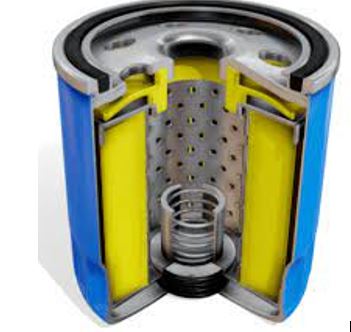
An Engine Oil Filtration System
Here are some of the functions of an oil filtration system:
- Prevention of heat spikes in engine systems
An engine will begin to overheat if you use low-quality oil.
As the contaminants continually increase, the engine will wear out and inhibit the conductivity of heat.
An oil filtration system will assist with maintaining the engine components by continually providing lubrication.
Since oil leaving the oil filtration system is free from contaminants, the engine will not overheat.
- Minimize the rate of wear and tear
Oil filtration systems will minimize the moving parts of the engine from constant wear and tear.
By doing so, the durability of the engine systems will increase.
- Increases the life span of an engine system
Every engine needs clean oil to circulate in all the components for them to function properly.
Oil filtrations systems perform the task of preventing dirt, debris, and contaminants from accessing the internal components of engines.
The clean oil will enhance the power of the engine system and its longevity.
- Inhibits oil oxidation in engines
The oil that you use in engines will experience oxidation in both good and bad environmental conditions.
Oxidation process will increase the number of contaminants in oil hence decreasing its efficiency.
An oil filtration system will inhibit such contaminants from entering the engine system which would lower its efficacy.
This will assist in preventing the engine systems from various damages.
- Reduces engine downtime
Oil filtration systems clean oil thus ensuring clean oil reaches the engine.
This in return increases the functionality of the engine thus minimizing machinery downtime due to dirty oil that affects it.
Which Types Of Oil Filtration Systems Are There?
Now that you understand the basic functions of an oil filtration system, it is time to know the types.
There are several types of oil filtration systems in the market to choose from and this can be challenging if you are not an expert.
Though there are several types of oil filtration systems, they perform the same task.
If you are not conversant with oil filtration systems, it will be difficult to select one suitable for your application.
This is because there are several factors to consider such as the type of engine.
Here are the various types of oil filtration systems you can choose from:
Magnetic Oil Filtration Systems
This type of oil filtration system has secondary support to full-flow oil filtration systems.
Magnetic oil filters will clean the oil in the engine by eliminating any metallic debris and contaminants present.
However, magnetic oil filtration systems are not suitable for eliminating filth and dust particles.
One of the main benefits of magnetic oil filtration systems is that they will not require replacements.
This is beneficial as you will save on time and money by using magnetic oil filtration systems.
However other oil filtration systems need replacements as they lose their quality over time.
Magnetic oil filtration systems do not require replacements and will continue to last.
The only thing you need to do is clean the magnetic oil filtration system regularly to maintain its quality and for it to perform its tasks.
Magnetic oil filtration systems eliminate metallic impurities from engine oil.
If you prefer to change a single oil filtration system, a magnetic oil filtration system is your best choice.
This is because you do not need to change it now and then.
You only need to change a magnetic oil filtration once but take care and clean this system once in a while.
Magnetic oil filtration systems operate by generating a magnetic field or loading zones.
This field will attract and gather magnetic steel and iron contaminants.
The arrangement of the magnets is geometric enabling them to form magnetic fields containing non-uniform flux density.
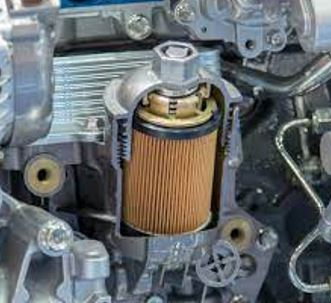
Magnetic Oil Filtration System
Magnetic oil filtration systems are suitable for the following:
- Gearboxes
- Big diesel engines
- Machines containing ferrous frictional surfaces
- Hydraulic systems especially those containing electrohydraulic valves
- Areas where magnetic oil filtration systems will extend the life of some conventional filtration systems being used
- Applications containing large amounts of iron that cause oil oxidation
Some benefits of a magnetic oil filtration system include:
- Extended life
- Minimal oil oxidation risk
- Improved wear particle identification
- No need for oil flow
- Usable in gravity flow line drains
- Minimal flow restriction
Some limitations of a magnetic oil filtration system include:
- Magnetization of transient particles
- Cleaning requirement
- Detachment of particle agglomerations
- Not effective for non-magnetic particles
Full-Flow Or Primary Oil Filtration System
These are some of the common types of oil filtration systems.
Full-flow oil filtration systems operate by removing impurities within the oil that the engine uses.
Also, they will clean 100% of the oil when they are operating normally.
Since they need to match the engine’s oil requirements, they operate with less restrictive media.
If they restrict the flow of almost everything, the engine will starve especially during cold starts.
Besides, these oil filtration systems are suitable for use in cold temperatures as cold temperature environments will cause oil to thicken.
Full-flow oil filtration systems allow oil to flow freely within the engine system compared to other types of oil filtration systems.
When a filter does not allow oil to flow, the engine may experience wear and tear as oil does not reach the engine components.
To eliminate instances where the engine has no oil, these oil filtration systems have bypass valves.
These valves enable the oil to flow by avoiding the filter media during complete restriction.
This is beneficial when starting the engine in extremely cold environmental conditions since oil is very viscous.
Primary oil filtration systems offer suitable oil to engines hence ensuring they perform optimally.
By-pass Or Secondary Oil Filtration Systems
This oil filtration system will clean part of the oil as opposed to the primary oil filtration system.
By-pass oil filtration systems clean between 1% and 10% of filtered oil to further eliminate fine contaminants.
Also, you can add a bypass oil filtration system as most automobile engines have primary oil filtration systems.
Since bypass oil filtration systems are added to eliminate fine contaminants, they will extend the lifespan of engines.
Bypass oil filtration systems will also prolong the intervals of the oil change.
Besides, they are a suitable addition to engines operating in severe environmental conditions.
Bypass oil filtration systems are normally used in diesel engines where they operate with primary filters to offer suitable oil filtration.
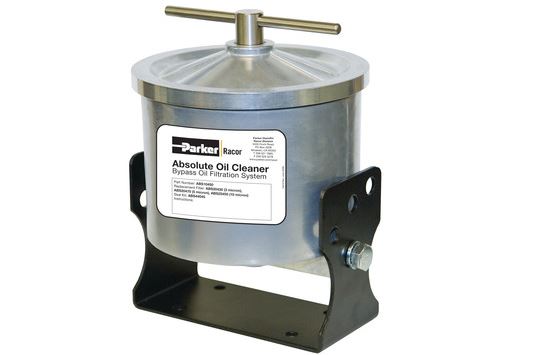
Bypass Oil Filter
Spinner Oil Filtration Systems
This is also known as a centrifugal oil filtration system.
Spinner oil filtration systems apply centrifugal force to separate the oil from the contaminants.
As the cylinder rotates, the particles and contaminants move outside.
It has two chambers, the membrane and housing chambers that assist in trapping contaminants from the oil.
Besides, the spinner oil filtration system can eliminate even the tiniest contaminant in the engine oil.
Also, this oil filtration system can produce forces greater than two thousand times.
Compressed air systems in automobiles will provide the force that drives these oil filtration systems.
Besides, you need to clean and thoroughly inspect spinner oil filtration systems regularly for them to operate efficiently.
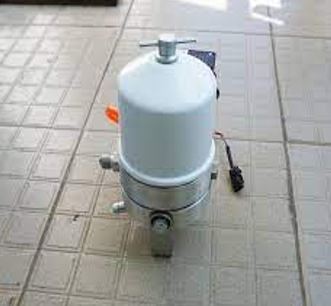
Spinner Oil Filtration System
Thermal Chamber Oil Filtration Systems
This is a regular oil filtration system with the capability of heating the oil within the system.
The thermal chamber oil filtration system operates in two distinct phases.
In the first phase, it will remove particles from the oil by cleaning it.
Secondly, it will heat the clean oil to eliminate all the impurities that may negatively affect the normal operation of an engine and its components.
Thermal oil filtration systems will use electricity, which originates from the automobile’s electrical unit, to heat the oil.
Cartridge Oil Filtration Systems
This is a variation of the full-flow oil filtration system.
Cartridge oil filtration systems are easy to use since once you place it in an upright position, you rarely remove oil to inspect the system.
Besides, cartridge oil filtration systems contain no metal material, which is the reason for their ease of use.
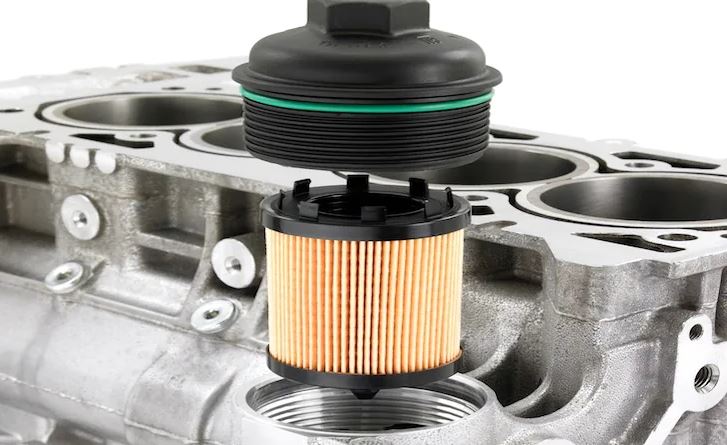
A Cartridge Oil Filter
Spin-On Oil Filtration Systems
This is also a version of a full-flow oil filtration system.
A spin-on oil filtration system contains a steel canister body and a paper element.
This system is easy to install and operate, hence it is a common choice for those who prefer to independently do things.
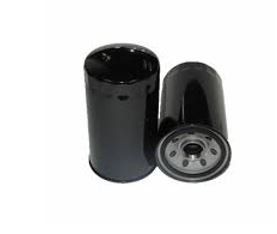
Spin On Oil Filtration System
Mechanical Oil Filtration Systems
These systems clean oil by using a bulk material substance or filters with pleated paper.
The media will trap the contaminants within the oil.
Sedimentation Oil Filtration Systems
This oil filtration system operates by allowing heavy contaminants that oil to sink to the bottom through gravitational force.
High Efficiency [HE] Oil Filtration Systems
This is a version of a bypass filter that increases the oil change variation intervals.
The pore size of high-efficiency oil filtration systems is about 3 mm, which will decrease the extent of engine damage, according to studies.
Some fleets of HE oil filtration systems will increase the interval of oil drain to between 5 and 10 times.
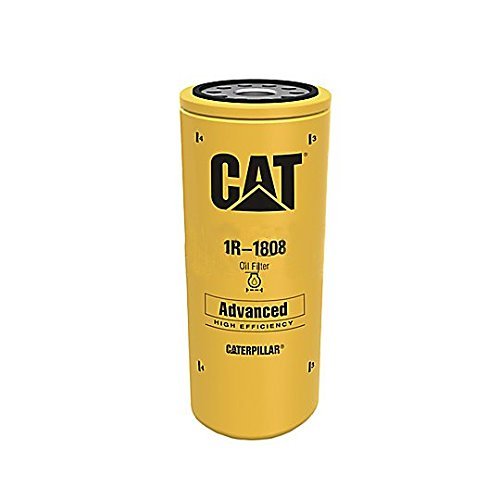
High Efficiency Oil Filtration System
How Do You Know When To Replace Oil Filtration System?
It is recommended that you change your oil filtration system whenever you perform an engine oil change.
This is about 10000 kilometers and 15000 kilometers or petrol and diesel engines respectively.
Another consideration is when the engine service lights turn on or when you operate in extreme weather conditions.
How Do You Choose Oil Filtration System For Any Application?
These factors will assist you in determining how well the system operates, the expected lifespan, and extra features.
Some of the factors that will help you choose oil filtration systems for your application to entail the following:
Design And Fabric
Oil filtration systems for automobiles need to be made from sturdy materials that are impact and stress-resistant to specific levels.
These allow the oil filtration system to continue operating effectively.
Material Construction
Some examples of materials that you can use to construct oil filtration systems include plastic, steel, or stiff cardboard.
Oil filtration systems normally experience pressure variations, temperature fluctuations, vibrations, etc.
The capacity of oil filtration systems to withstand these conditions will determine their lifespan.
Type Of Filtration Media
There are several types of filtration media that you can use in oil filtration systems, each with its benefits and limitations.
Most cost-effective oil filtration systems use cellulose material as the filtration media.
These are affordable media that have minimal restrictions to oil flow and can absorb water from oil.
Another media is a synthetic material that has suitable dirt-holding capabilities and particle capture efficacy.
Their spores are small and uniform, making them efficient than cellulose material media.
Micro-glass is another medium that has extremely fine glass fibers and has a high-efficiency rate in various conditions.
Due to this reason, you will use micro-glass media in expensive oil filtration systems.
The earlier versions use steel wire meshes as a filter media which is usually woven.
Besides, you can clean and reuse this material making it economical.
However, you cannot filter fine particles with them as their size will limit how close you can weave them together.
Side Seam Of Filtration Media
This is a seam where the ends of the pleated material will join.
The side seam needs to be tight, leaving no room for openings or cracks.
If the seam has gaps, contaminants will pass through thus negatively affecting the performance of the oil filtration system.
Firmness And Density Of Pleats
Here, you can support the pleats with adhesive or wrap beads.
However, the pleats need to be tight and firm no matter the type of support you are using in the system.
Loose pleats will crumble under pressure thus inhibiting the oil from flowing freely.
Also, the pleats need to be firm as they experience various high differential pressure instances.
Valve Seats
The valve seats can be made of a metal material of elastomer like nitrile.
Metallic valve seats may not be suitable for inhibiting oil from flowing continuously.
This effect can decrease the efficiency of the oil filtration media.
Using plastic material in constructing bypass valve springs is not suitable.
The material you will use to make valve seats forms a borderline between the best and worst oil filtration media.
Adhesives Of End Caps
The adhesive you use must fill the cap ends to increase the structural integrity of pleated media.
Besides, the adhesive should not enter the oil filtration media as it will affect the seals.
Adhesives for end caps may seem insignificant yet it is an essential part of oil filtration system specification.
The adhesive will determine the oil filtration systems’ strength, performance, and lifespan.
Capacity To Hold Dirt
This shows the number of contaminants the oil filtration media can contain before it clogs completely and activates bypass mode.
The dirt holding capability is a factor that you will use to determine the lifespan of the oil filtration system.
Besides, it is a vital factor in automobiles that drive through very dusty environmental conditions.
Dirt holding capacity can assist you to locate the best oil filtration system for your application, or maximum mileage before replacements.
Manufacturers make oil filtration systems with varying dirt holding capabilities.
This means it will affect the lifespan of the oil filtration system, as some last longer than others.
However, manufacturers rarely show this specification, hence requiring you to test this filtration system.
Also, you can directly contact the manufacturer and ask for the exact value.
Characteristics Of Pressure-flow
This factor will determine how the oil filtration system will perform under extreme pressure levels when you restrict oil flow.
Besides, this is vital since it is normal to experience differential pressures especially when the situation causes high levels of contaminants in the oil.
In these conditions, the oil filtration system will activate bypass mode to allow the engine to receive oil.
Efficiency Of Particle Capture
This is how effective the oil filtration system can retain contaminants.
It narrows down to the type of filtration media you are using since it is the location where the filtration process takes place.
Tiny pores and a high number of pores per square inch will enhance the efficiency of the oil filtration system.
Is Vacuum Dehydration Oil Purification System Same As Oil Filtration Systems?
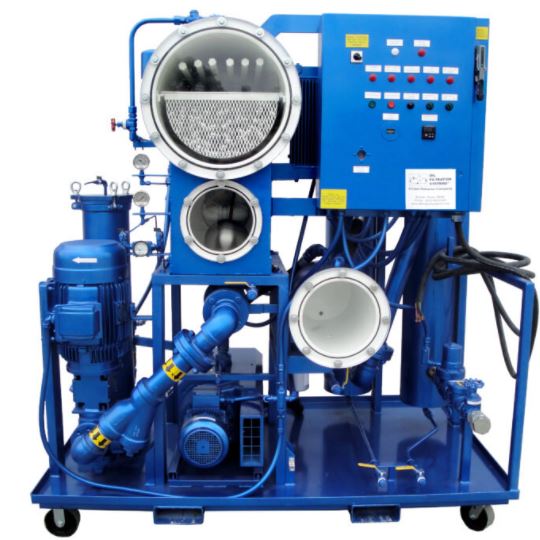
A Vacuum Dehydration Oil Purification System
These systems are not the same but they both assist in cleaning oil.
A vacuum dehydration oil purification system is an equipment that will separate the following substances from oil:
- Water
- Particulate
- Gaseous substances
An oil filtration system is a unit that will remove contaminants from various types of oil.
Here is how a vacuum dehydration oil purification system operates:
Water Removal
A vacuum dehydration oil purification system can eliminate water contaminants within the oil.
It performs this in three distinct phases and they include the following:
Free water
This is water that has not mixed with the oil substance and is visible to the human eye.
Besides, you can easily remove free water through decantation or pouring the oil substance from one to another container.
A vacuum dehydration oil purification system will enhance the removal speed of free water.
Emulsified Water
This is water that has blended with oil.
Besides, it will not fall or separate from the oil substance when you settle it at the bottom.
However, a vacuum dehydration oil purification system is capable of eliminating emulsified water from oil.
Dissolved Water
This is water that has dissolved in oil, resembles humidity, and is not visible to the human eye.
After you eliminate emulsified water, a vacuum dehydration oil purification system will focus on eliminating dissolved water.
However, eliminating dissolved water is a time-intensive process.
Gas Removal
A vacuum dehydration oil purification system eliminates gases like methane, propane, benzene, etc., from oil.
Particulate Removal
A vacuum dehydration oil purification system will remove particles so that oil has a low particle count.
It is important to remove water using a vacuum dehydration oil purification system as it can cause the following issues:
- Hydrogen-induced fractures
Moisture in oil can cause hydrogen embrittlement and the alloy compressors to fail.
- Corrosion
Water can increase rusting formation which can damage bearing surfaces in the machine.
- Impairment of film strength
Dissolved water will affect the viscosity of oil that causes loading zones thereby forcing oil bumping.
- Foam and aeration
The moisture within the oil can decrease its interfacial tension [IFT] and may cause form and aeration in oil.
- Microbial contamination
Water may cause microorganisms such as fungi and bacteria to thrive.
As time elapses, these microorganisms may restrict the flow of oil within the system.
A vacuum dehydration oil purification system will offer the following benefits:
- Minimal running costs
- Increases the lifespan of oil
- Extension of the engine performance
- Minimizes machine downtime that happens due to dirty oil
Which Contaminants Do Oil Filtration Systems Remove?
An oil filter system will remove contaminants that come from the following sources:
- External environment
Moisture may contaminate the oil from sources such as high-pressure washing.
- Internal environment
This may happen due to the introduction of water in oil as the engine condenses.
- Air vents
Particles, water, and dirt may enter via these vents and contaminate the oil.
- Oxidation
This may cause the formation of water as high-temperature levels and contaminants form resins, water, and acids.
- Leaking coolers
This will introduce water in oil units and can lead to the following:
- Isolation or sticking of the engine parts
- Metal corrosion
- Decrease in oil dispersion rate
- Lower lubrication thus cause wear and tear
- Corrosion and rust
Water will cause rust to form on metals which may enter and contaminate the oil.
Is Transformer Oil Filtration System Same As Engine Oil Filtration System?
Both of these oil filtration systems operate by cleaning oil within the system.
They perform this task by eliminating particles, moisture, and dissolved gases from the oil.
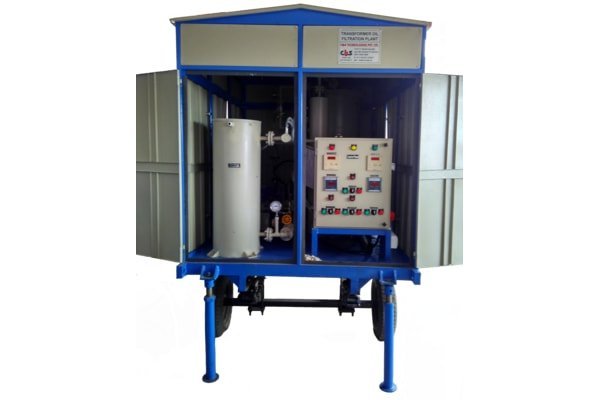
Transformer Oil Filtration System Are Used In Electrical Power Industries
However, engine oil filtration systems find their application in automobiles.
Transformer oil filtration systems find their application in the electrical power industry.
Are There Portable Oil Filtration Systems?
Yes, portable oil filtration systems exist in the market.
These are systems you can move from one place to another for oil filtrations.
They will pre-filter then relay the clean oil in reservoirs or even clean a pre-existing system.
Besides, they have the following features and benefits:
- A flow rate ranging between 25l/min to 200l/min
- Minimal noise production
- Simple and easy to use and install
- Lower downtime
Why Do You Need Bypass Oil Filtration System?
This oil filtration system cleans only a portion of filtered oil to further remove very fine particulates.
Besides, these filtration systems will increase the durability of the engines and oil change intervals.
What Are The Quality Standards For Oil Filtration Systems?
An oil filtration system should comply with the following quality standards:
- ISO 9001 certification
- SAE certification
- TS16949 certification
- Eurovent certification
- CEE certification
What Is Oil Filtration Skid?
An oil filtration skid is a convenient and portable system that you can use to conduct offline oil filtration.
The oil filtration skid comes complete with a control panel that you can use to monitor and input the filtration parameters.
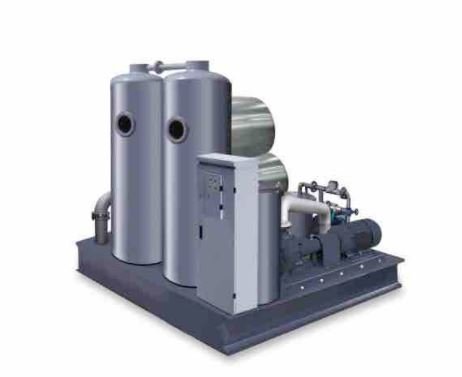
An Oil Filtration Skid
What Is An Oil Filter Cart?
An oil filter cart is a portable method that can perform the following:
- Filter several types of used and new oil
- Capture oil samples
- Transfer filtered oil to machines
- Clean stored lubricants
- Drain used oil from various equipment
- Transfer oil to storage containers
- Offer contamination control parameters such as hose cleaning, line flushing, directional wand flushing, etc.
How Does Oil Filtration Systems Remove Water And Moisture?
An oil filtration system can use a coalescer, absorption, or centrifuge to remove water and moisture.
Here is how they operate:
Coalescer
Here, you will join the water droplets to form a large water pool which you can eliminate from oil.
Coalescing filters operate well with less viscous fluids and cannot handle solids.
Absorption
Here, you use water-absorbing cartridges that use hygroscopic media to remove free water within the oil.
Besides, they cannot remove dissolved or emulsified water effectively.
Centrifuge
This entails applying centrifugal force to remove water from oil.
The centrifugal technique will force oil and water, which have different densities, to separate from one another.
Clean oil heads back into operation while water moves to another tank.
The centrifugal process will eliminate both water and solid contaminants.
What Is Kidney Loop Oil Filtration System?
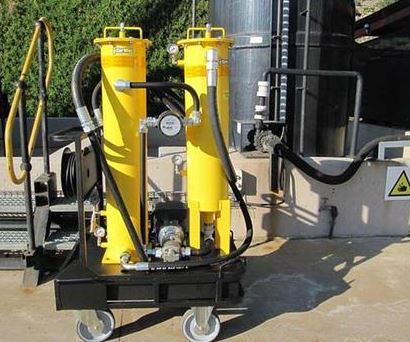
An Image Of A Kidney Loop Oil Filtration System
This is a system that operates by drawing hydraulic oil from reservoir systems.
It then uses pumps to circulate the oil via short oil filtration systems then return the clean oil to the reservoir tank.
This system is efficient at eliminating contaminants since it has no exposure to pressure variations or the hydraulic system.
Also, independent kidney loop oil filtration systems can operate 24/7 even if the hydraulic system is shut down.
Besides, they can be quite large and the reservoir volume needs to be turned over between five and seven times per minute by recirculating pumps.
What Are Oil Filtration Systems Rating?
These include the following:
Nominal And Absolute Rating
A nominal rating indicates the smallest particle that can penetrate the filter.
The absolute rating shows the largest particle that can penetrate the filter.
Beta Rating
This is the ratio of particles before and after the oil filtration process.
A high beta ratio indicates a high capture efficiency of the oil filtration system.
How Does Off-line And In-Line Oil Filtration Systems Compare?
Off-line oil filtration systems can filter a small portion of oil and returns the clean oil to the sump of the unit.
In-line oil filtration systems offer more efficient control of contaminants as they operate 24/7.
Off-line systems are portable while in-line systems are not portable.
How Does Full Flow And Depth Type Oil Filtration Systems Compare?
Full-flow systems perform quick filtration and will protect downstream machine components from large contaminants.
They directly intercept the large particles.
Depth type performs slow filtration and will protect downstream machine components from smaller particles.
They operate through interception and absorption.
What Specification Tests Can You Conduct On Oil Filtration Systems?
The two main specification tests you can perform to determine the performance and lifespan of oil filtration systems are:
- SAE HS 806
- SAE J1858
They determine the burst pressure, dirt holding capacity, hot oil longevity, etc.
What Types Of Media Can You Use With Oil Filtration System?
These include:
- Cellulose media
- Micro glass media
- Synthetic media
What Will Cause An Oil Filtration System To Fail?
An oil filtration system will fail due to the following:
- Cross threading
- Wrong filter size
- Incorrect tightening
- Clogging
- Collapsed internal parts
- Worn out seals
How Can You Troubleshoot An Oil Filtration System?
Check if the filter is compatible with the engine since other filters will not operate in certain engines.
If the oil filtration system is leaking, verify the compatibility and ensure you install it correctly.
When you experience damaged threads, ensure you correctly install or replace them with a new filter
Install a new filter if the rubber seal is broken.
What Are Pressure Relief Valves In Oil Filtration Systems?
These are systems that enable oil to bypass oil filtration systems when there is a restriction in oil flow.
The bypass occurs when the oil filtration system clogs because of cold weather.
For all your oil filtration systems, contact DeMalong Filters now.
